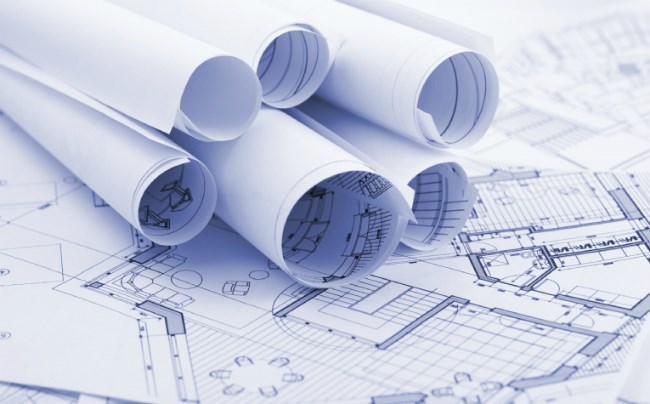Not sure where to start when planning on extending your home? We’ve got your back with this helpful twelve-point guide. A home extension can be a useful way to add space, liveability and value to your home. The right planning, advice and discipline will ensure that your home renovation project goes off without a hitch. Here’s what to keep in mind before getting started.
Where do I start?
The design stage of the project is the first step in any home extension plan. Every home extension requires a custom plan drawn, by appointing the help of a professional draughtsperson, a building designer, or an architect. Extending your home will not only create more space and add value to the property, so for this reason, choosing the right person for the job is essential. Consider asking your friends or neighbours for recommendations when interviewing a shortlist of preferred designers. The level of expertise will enable you to make an informed decision.
Do I require planning permission?
By law, homeowners must ensure that any new building or renovation plans for their property has been approved by the relevant local authorities.
Whether you want to build a new wall around the property; build a swimming pool; add on a room, a second story, or a new wing, it is important to liaise with the planning department of your local municipality as you may require planning permission before proceeding.
This can be achieved by appointing a qualified architect or draughtsperson to draw up and submit the building plans to your local municipal planning department.
It is important to also keep in mind the fee structure that the process entails. For smaller home alterations, a draughtsperson would be better suited and more cost-effective.

Who am I building for?
Many homeowners push ahead with their extension project, but put very little thought into what it is they are trying to achieve. For this reason, it is imperative to establish what the purpose of your home extension is. Your extension plans should never be a listing of random thoughts and ideas you have collected over the years. Instead, it should reflect any personal and unique aspects which comprise the purpose of the extension. Which will give you clarity on what you wish to achieve, and simultaneously curb unnecessary cost?
Is there sufficient space to accommodate the new building or renovations?
Are you looking for a new living area that the whole family can enjoy, an extra bedroom for a new arrival, or a home office? Determine the purpose of the new building or renovation. Even rudimentary measurements will give you an indication of how much space you will need to follow through successfully with your home plans. To visualise the amount of space needed, use a rope as a marker to map out the extension plan. Use the size of your existing rooms as a guide to gauge how big each room should be. Stand back and assess whether you are happy with the amount of space remaining afterwards.
Up, down, or out to the side?
Make a decision on which part of your home will require an extension. If you don’t have enough space to extend at ground level, you may need to consider adding a second storey. An additional level to your home is a great way to retain backyard space. Although you might feel the structural and roofing costs of an extra level are excessive, these often achieve a satisfying result. It is essential to consider the finished look of the home, incorporating the renovations. Investing in a second storey has the potential to enhance the aesthetic appeal of your home - if done so correctly.
A good architect or building designer will ensure that practical and aesthetic considerations are maintained.

Will my plan impact on my neighbours?
Consider the effect your home extension will have on your neighbours, especially if you are making significant alterations to your property. If you share a wall with your neighbours, you will need to consider if your home alterations may potentially damage their property. Building construction or renovation may well cause unpleasant living conditions for your neighbours. Keeping them informed of your intentions will help to alleviate hard feelings.
Do my neighbours have a say?
While you should keep your neighbours informed of your plans to extend, there is no legal requirement from the National Building Regulations and Building Standards Act (NBA) requiring home owners to submit or inform their neighbours of their building plan application.
However, dependent on the area you live in and its policies, a neighbour can be at liberty to object against your home extension, if the area policy implemented by local authority allows for it.
In this case, a neighbour can submit their objection, but it won’t necessarily prevent the building plans from being approved.
While the municipality can acknowledge the objection, it is up to local authority to make up its own mind as to whether the plans should be approved or not.
What are the costs involved?
One of the central elements of a home extension is the demolition work required and the costs that come along with it. It is crucial to bear in mind that each wall demolished will require the involvement of several tradespeople to complete the extension.
These tradespeople typically include:
- Carpenters
- Plasterboard experts
- Painters
You may also need to enlist the help of:
- Electricians
- Plumbers
- Tilers
To be able to account for these additional expenses, it is essential that they are included in your project's budget.
Will it brighten up the house?
One of the key considerations when extending your home is to investigate the most effective ways to bring more sunlight and warmth into the house. As one of your key priorities, especially if you are adding a living room or family room for regular use. Having more natural sunlight will make it a more comfortable space to live in, and will also reduce the amount of artificial heating required. However, while an excessive amount of sunlight may be fantastic in winter, the opposite can be said for a scorching hot summer’s day and can make the space unpleasant. Although large windows will brighten the inside of your home be very aware of the amount of sunlight, the windows will be exposed to when including these into your design plan.
Would I need to move out?
Being able to live in the house throughout the building period can be less expensive and more convenient as you can avoid having to uproot your life and routine. However, an extension project which involves a significant amount of renovation work to an existing part of the house might be challenging to live with until the completion of the project. In these circumstances, you can arrange to have the extension project staged so that you can move from one part of the house to the next. However, a staged building project generally takes longer to complete often, resulting in higher costs.
How do I find a builder?
Finding the right building contractor is one of, if not the most, important factors to consider in a home extension project. It is therefore crucial to appoint a builder who is registered with a professional, reputable organization. In South Africa, there are two primary building bodies, the Master Builders Association South Africa (MBSA) and National Home Builders Registration Council (NHBRC).
Recommendations are also important when looking for a builder. You should choose a builder who is experienced in doing similar work and within similar budgets to yours. Consider asking friends and colleagues for their recommendations and create a shortlist of builders to get quotes from.
Based on the quotations you receive for their pricing and workmanship; you will be able to choose a builder that is best suited for the job.

How long will it take?
A simple extension will take about four weeks, provided that the new space will fall under an existing roofline, and the number of artisans required to complete the work is limited. A similar timeline would also apply if you were adding a kitchen or bathroom. Large extensions that involve a lot of renovations to the existing building are likely to take between three to six months or longer, mainly, if the extension is a second storey addition. Calculate a completion date taking into consideration any potential delays, to avoid downtime, and keep builders on track. Don’t underestimate the impact which building an extension can have on your quality of life, and try to minimize that impact.
Updated 29 August 2021




